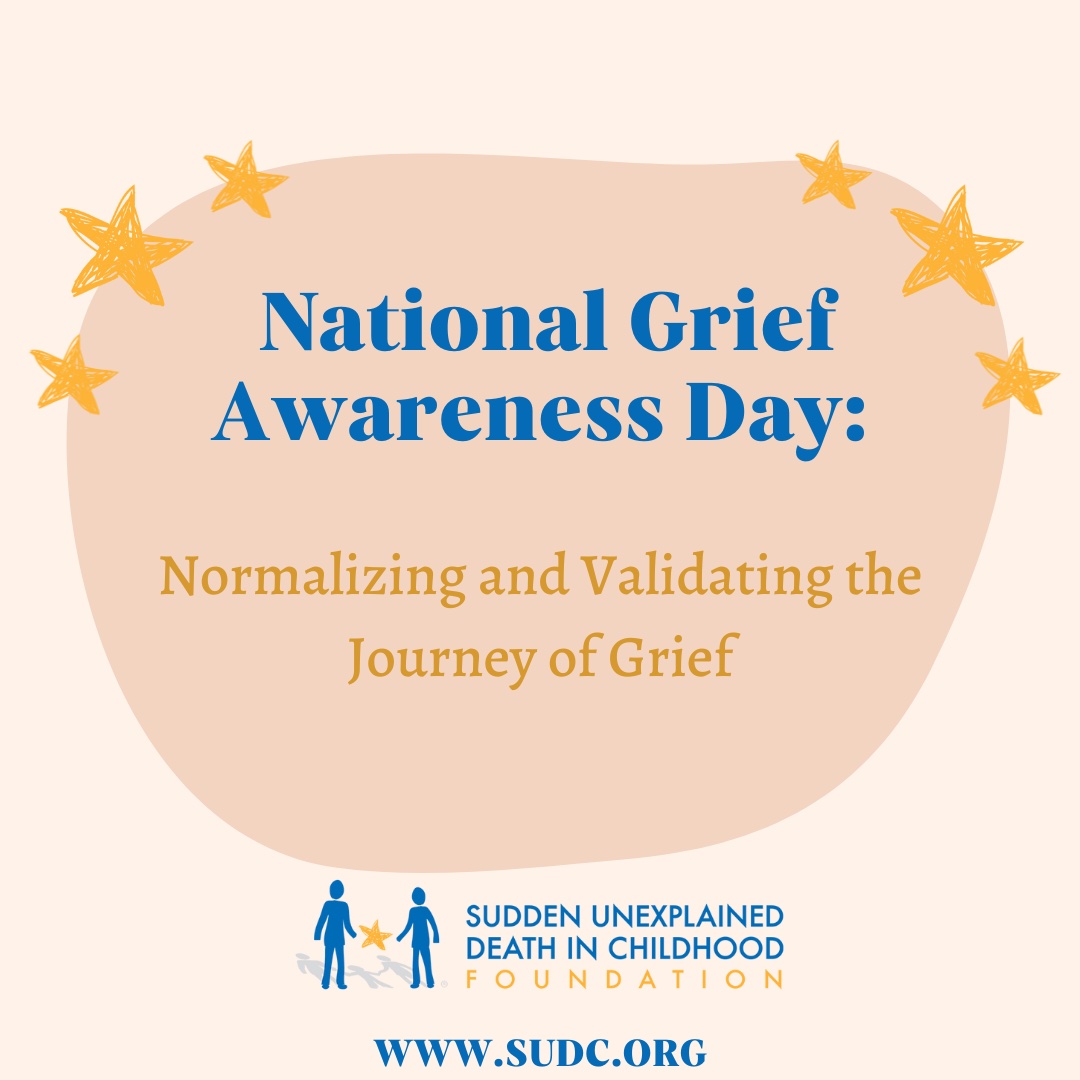07 Aug National Grief Awareness Day: Normalizing and Validating the Journey of Grief

Written by: Amanda Brindle, LSW, Associate Manager of Family Services
On National Grief Awareness Day, we gather to shed light on the profound and often overlooked aspect of the human experience: grief. This day serves as a reminder to normalize and validate the diverse paths of grief, challenging the prevalent silence and misunderstanding in our culture. It’s an opportunity for us to foster empathy, compassion, and support, creating a society that embraces and honors the grief of individuals and communities. By acknowledging the significance of grief and learning how to honor those who grieve, we can make National Grief Awareness Day a powerful catalyst for change, understanding, and healing.
Understanding Grief:
Grief is not a linear process with prescribed stages. It is unique to each individual, influenced by their relationship with the person or thing they’ve lost and their personal circumstances. Society tends to expect grief to have an expiration date, but the reality is that it can ebb and flow over an extended period. It is crucial to acknowledge that grief can be triggered by various losses, such as the death of a loved one, the end of a relationship, the loss of a job, or even major life transitions. Recognizing the diverse manifestations of grief is the first step towards cultivating empathy and understanding.
Normalizing Grief:
On National Grief Awareness Day, let’s encourage open conversations about grief. We need to create safe spaces where individuals feel comfortable sharing their experiences without judgment or fear of being misunderstood. Normalizing grief involves creating a culture that recognizes it as a natural part of life rather than something to be hidden away.
Education and Awareness:
Promoting education and awareness about grief is crucial in a grief-illiterate culture. By incorporating grief literacy into school curricula and workplace training programs, we can enhance understanding and equip individuals with the tools to support grieving individuals effectively.
Media Representation:
Media plays a significant role in shaping societal norms and perceptions. By portraying diverse experiences of grief in books, movies, and television shows, we can challenge stereotypes and broaden our collective understanding of grief. Accurate and sensitive portrayals can help destigmatize the grieving process.
Validating Grief:
Validating grief means acknowledging and honoring the emotions and experiences of those who are grieving. It requires cultivating empathy and compassion. Let’s offer a listening ear and a comforting presence. We should avoid judgment and dismissive comments, recognizing that each person’s grief journey is unique.
Rituals and Memorials:
Creating opportunities for remembrance and honoring the lives of those who have been lost can provide solace to the grieving. Memorial services, candlelight vigils, or personal rituals can be powerful ways to validate grief, allowing individuals to express their emotions and pay tribute to their loved ones.
Support Networks:
Building support networks and communities where people can connect with others who have experienced similar losses can be immensely comforting. Online support groups, local grief counseling centers, and community organizations can provide a sense of belonging and validation for those navigating the grieving process.
On National Grief Awareness Day, let us come together to normalize and validate grief in our society. By fostering open conversations, promoting education, challenging societal norms, and validating the grief of individuals, we can create a culture that embraces grief as an integral part of the human experience. Through empathy, compassion, and the validation of grief, we can honor those who have been lost and support those who are grieving. Together, we can create a world where grief is acknowledged, understood, and met with the compassion it deserves. National Grief Awareness Day becomes a powerful catalyst for change, fostering a more compassionate and supportive society for all those affected by loss.



